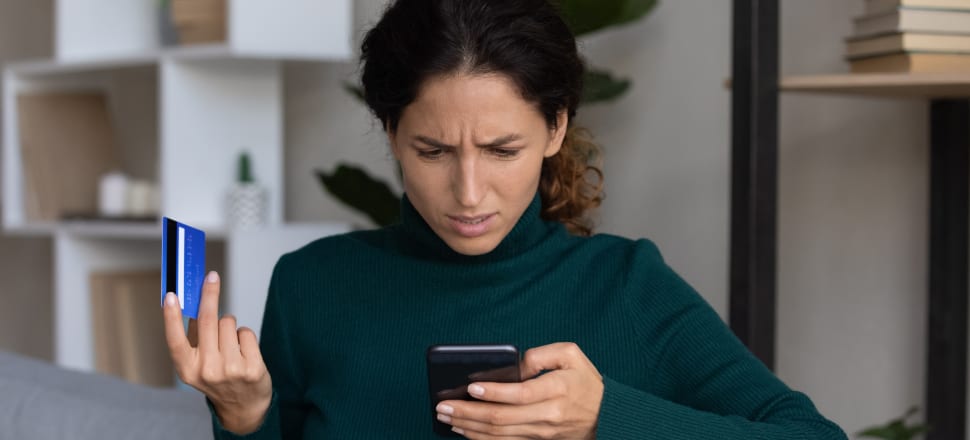
As the online criminals become more sophisticated, so must we. Or we can have some fun instead …
Opinion: There has been considerable debate recently about online scams, which are becoming increasingly prevalent and sophisticated.
I remember 15 years ago forwarding an email to members of my family commenting how amazing it was to have a relative I'd never heard of die and leave us USD$8.5 million. It was tongue-in-cheek because we all knew it was a scam.
It began “Dear Friend” and was signed by a barrister – yeah right.
READ MORE:
* Winning ‘whack-a-mole’: How businesses can beat cyber threats
* Sophisticated scams target large investors in NZ
* Want protection from online scams? Try these tips
It was filled with typos and malapropisms: "forgive my indignation if this message comes to you as a surprise and if it might offend you without your prior consent and writing through this channel".
Ostensibly someone called Patrick Dalziel had died in a car crash with his whole family, and his barrister had been unsuccessful in finding relatives, so he had been forced to search the internet looking for the same name and … bingo!
One survey suggests more than a quarter of a million New Zealanders could have been scammed in the past year alone. I was surprised to see how little was reported to the authorities
Repatriating the money was a matter of urgency as he had been given only 21 ‘official’ working days to produce the next-of-kin or the money would be confiscated.
All he required from me was my ‘honest’ cooperation.
It was very funny, and we all had a great laugh about it.
A few years later I shared the James Veitch Ted Talk, where he responds to a spammer, doing what he says he thinks we've all always wanted to do. "Solomon," he wrote, "your email intrigues me." Thus ensues an absolutely hilarious set of exchanges, which has the scammer becoming increasingly frustrated and still not knowing he was the one being taken for a ride.
But today, the scammers are much more sophisticated than my 'barrister' or Solomon.
And as we know, all it takes is a moment’s inattention and a vague recollection that the rego needs updating, and there you have it. I have done it once but fortunately I knew straight away and acted to prevent any consequences. I vowed I would never do that again. I question everything that doesn’t look right – even to the point of contacting my energy company to confirm the name of the contractor who wanted access to my property to upgrade the meter.
I check email addresses. The Waka Kotahi email is definitely not support@update.com.
There are still the obvious ones. This is a recent one that went straight to spam. It offered letters of credit to organisations or individuals with their ‘preferred text verbiage’ approved by their bank, ‘it's cash backed unconditionally transferable, assignable, callable and authentication verifiable bank to bank’.
Yes, verbiage turned out to be an appropriate word after all.
And the typos are a dead giveaway.
“Renew your subscription as you are now unprotected from cyber attacks and hackers For your securiity, we strongly recommend that you reneew your subscriiption. Please renew your subscriiiption now.”
Joking aside, these are serious issues. Besides which I expect typos will disappear with the likes of Chat GPT. One survey suggests more than a quarter of a million New Zealanders could have been scammed in the past year alone. I was surprised to see how little was reported to the authorities. Is victim-blaming part of this I wonder? Do we feel ashamed when we miss those telltale clues? Do we think it’s somehow our fault when we are in fact the victim of what is a sophisticated fraud?
I note there is a call for banks to be held more accountable for scams. I agree. If the name of the account holder does not match the account it’s being transferred to, then the transaction should be delayed while verification is sought. There is much more accountability overseas, so why not here?
It seems just issuing public warnings is not enough. There are many people caught out by a fraudulent scheme, weeks or even months after authorities have issued such warnings.
Netsafe has good advice on scams. And recent debate has referred to the Computer Emergency Response Team, which I hadn’t heard of before.
But at the frontline are the banks. My bank frequently posts alerts on the online banking site and sends alerts in online newsletters – the ones that say the bank will never ask for details of your accounts. But more is needed to hold them to account. In other jurisdictions they can be held liable for losses caused by scams. That’s a strong incentive for playing a more vigilant role.
Maybe social media sites should be targeted with alerts much more frequently, potentially using the same tools as the scammers do, like online quizzes. Would you answer questions about family names, pets, and old addresses when we know these are often used as security questions?
As the online criminals become more sophisticated, so must we. Or, like James Veitch, we can have some fun.
The other day a friend told me they received a call from someone who said they were from a company like Microsoft and saying it was urgent that they fix their computer. He said he didn’t have one. A laptop then? No, he didn’t have one of those either. An iPad? No. Well what about his phone then? No, he didn’t have one of those either he said over the phone.
At that point the scammer accused him of lying to him. He replied, "well, you started it". Click.







